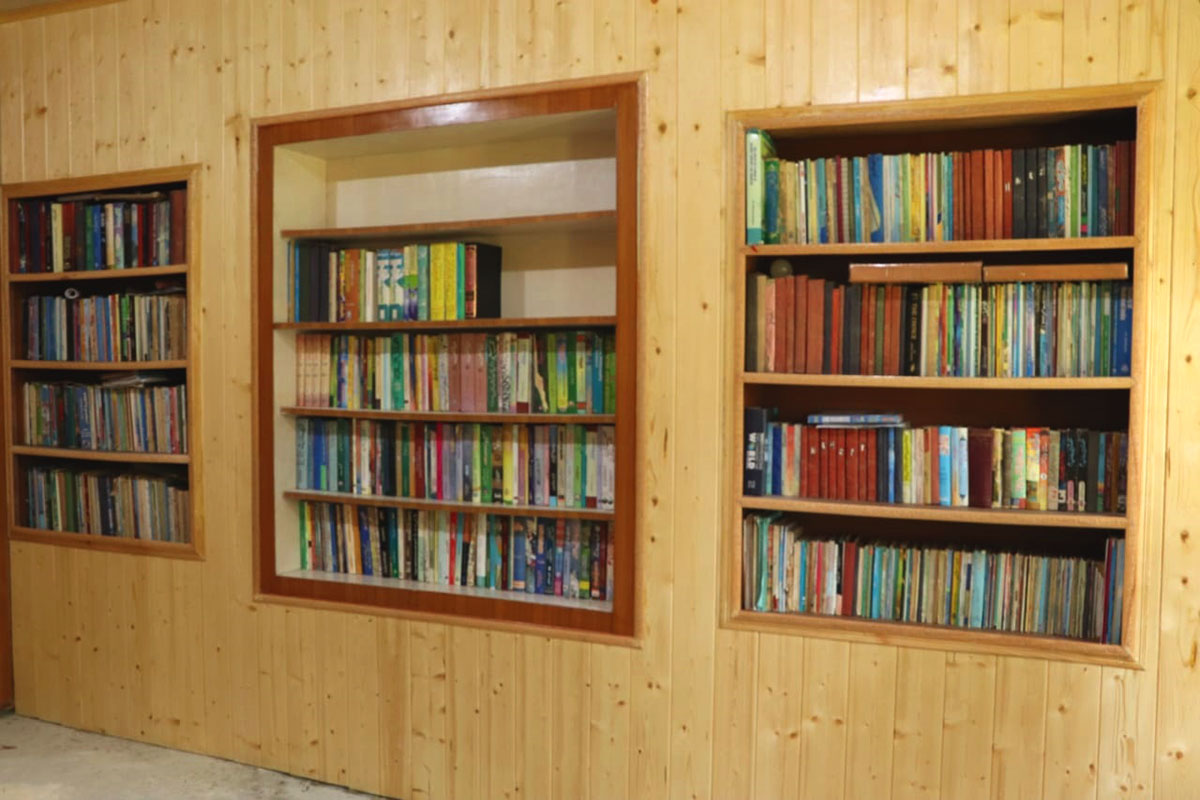Before the Television took over, it was radio that mattered much. In good old early nineties, when Yuwani Service started its operation in the Radio Kashmir Srinagar, some new talent was projected. These included Shaukeen, a poet, whose songs would top the charts.
Mixing the hard realities with emotions and trends, he was an instant hit. Most of his numbers would move from the airwaves to the rice fields where women would sing these songs while transplanting the paddy. He wrote stir, comedy and even prose. His sarcasm looked a fine art.
His compositions were so popular that various businesses started recording his cassettes that would sell like hot cakes:
“Lambay Lambay Hippioun Kay Baal Deakho.
Tath Che Wanan Noorpora Tral Dekho.”
(See the flowing hair of the towering hippies. That place is called Noorpora Tral)
It is the same Noorpora village in Tral, almost 36 km south of Srinagar, where he was born. Now 62, Muhammad Subhan Shaukeen said the village was earlier called Gairoo and was later named as Noorpora. It was this famous number that changed the name of the village. Young by heart, he still walks with authority and like an actor that naturally defies his age.
Born to a poor family, Shaukeen’s father Ghulam Qadir Malla was a Tonga driver. People called him Qadir Joo. His mother Azizi, was interested in singing and remembered the Gulreez. She would often hum Kashmiri folk songs and it was Shaukeen’s first introduction to the world of poetry and songs.
Shaukeen did his schooling from Government High School Noorpora and was fascinated by the radio. This passion led him to write.
When Shaukeen was in sixth grade, he went to Radio Kashmir Srinagar and took part in the Bacheh Program, a segment dedicated to the kids.
Shaukeen was once awarded Baal-e-Jabrael, one of the famous poetic collections of Allama Iqbal, and Rs 20. Though the prize was too small, it was enough for the young Shaukeen to give him an objective for his life – to become a writer.
An early exposure to the media led Shaukeen to go an extra mile. He started Hilal Youth Club in his village that had singers, artists and actors as its members. Apart from participating in various programmes for the Radio and Doordarshan, this club soon became the sole entertainment for thousands of people. Noorpora which is now known for post-Burhan militancy was then a hub of entertainment.
In 1972, Shaukeen joined Yuwani Service. He gradually grew in his stature as an artist and as a bright student. Throughout, he had a concern for his mother tongue, which is why he started writing in Kashmiri language.
After completing his BA from Government Degree College, Anantnag, Shaukeen did a diploma course in Kashmiri language to become eligible for doing masters from the University of Kashmir. “I had a dream of pursuing PhD in Kashmiri but my economic conditions didn’t allow me to do so,” Shaukeen said. “I gave up my M Phil programme only after submitting my synopsis.”
“Then, giving up my dream was never an easy task but looking for a job was need of the hour,” Shaukeen said. “Even though I was eligible, had a name and a bit of fame, it was not enough to get me a job. Finally, I ended up becoming a contractual teacher.”
However, Shaukeen did not stop writing. He used his Kashmiri poetry to portray the society in a satirical and humorous manner that created an instant impact on the minds of the people.
His songs would pass a verdict on a society without insulting the people. It was the age of long hair and hippies. His famous song was in that backdrop:
Lambay Lambay Hippioun Kay Baal Deakho,
Jaanay Na Yeh Ajab Haal Deakho
Another of his famous number was a sad commentary on the status that one acquires after passing his matriculation examination.
Chus Beh Matric Paas Hassa, Paas Hassa Hay,
Chus Beh Nafar Khas Hasa, Khas Hasa Hay
(Listen, people, I am a matriculate and I am a very special man)
The song took the airwaves by storm. Shaukeen started receiving almost 20 to 30 letters in appreciation a day and that made him a “special man”. Some of his lovers used to visit his home just to see him. One day, Shaukeen said, he was shocked to listen to a lady from a neighbouring village, Midoora. The lady visited him and revealed that she collected eggs for months to fund her plan to purchase a radio set. “Just to listen to my songs, she said,” Shakeen remembers. “I was amazed, overwhelmed.”
As Shaukeen turned 40, he started his own production and dramatised his own song, Asun Trayeh. The venture, he said, provided him with economic support. Later, he was picked as the host of Bacche program. This gave him enough exposure and opened new avenues for him. He later acted in various TV shows like Gulreez, Laila Majnun andHabba Khatoon. In Habba Khatoon, Shaukeen played the role of Yousuf Shah Chak. Besides, he also wrote a number of short stories and plays such as Woreh Rag (a step mother’s nerves), and Dougoush (a faint sight).

Subhan Shuakeens Library
Few years back, Shaukeen retired as master from the education department. He has three books to his credit: Asun Teh Gindun (laughing and playing), Lockchaaruk Neeathur (childhood marriage) and Darduk Aalaw (Cry of pain).
Retired, Shaukeen has not stopped writing. But the changes in times have faded him from the society’s memory.
A tribute to the special man then, now and forever.
